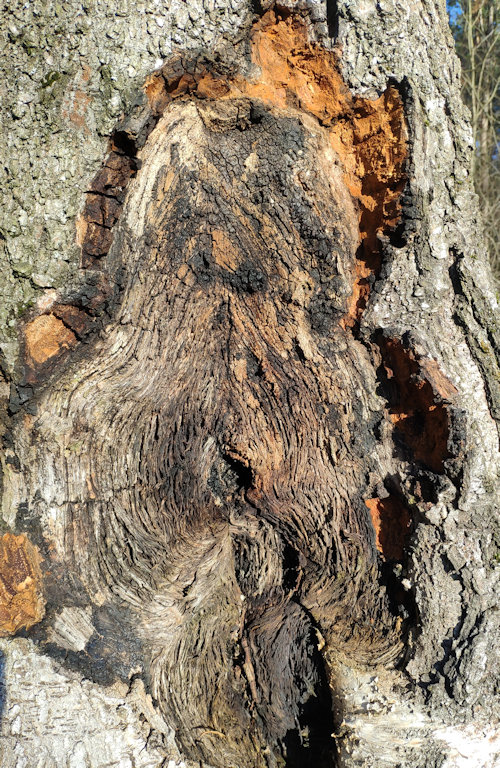While oak wilt isn’t known to exist in most counties in Maryland, it’s still not unheard of there.
Homeowners in Charles, Calvert, St. Mary’s, and Anne Arundel counties might still experience declining or dying oak trees in their area.
What is the threat, exactly? Where is the threat? And what can you do to help?
Arming yourself with as much information as possible is the first step. If you’re wondering how to protect the oak trees near you, keep reading. We discuss symptoms to look out for and what to do if you find them.
What Is the Threat?
Oak wilt is an invasive disease caused by Ceratocystis fagacearum, which is a fungal pathogen. It was first discovered in New York, our nearby neighbor, in 2008.
That fungus causes a vascular infection in the tree, preventing it from getting the necessary nutrients and water needed to grow and thrive. The entire circulatory system of the tree is affected, killing it quickly.
Oak wilt can spread in two ways.
In dense areas of forest, oak wilt can spread from diseased trees to healthy trees through their root systems. This manner of spreading takes longer but is still effective. A faster, broader way of spreading is through Nitidulid beetles that feed on a diseased tree and then spread the disease through a fresh wound in a healthy tree.
Oak wilt has been found in sixteen different native oak species.
Where Is the Threat?
Oak wilt is most prevalent in the eastern part of the USA.
In fact, it’s one of the most serious diseases facing oak trees, killing hundreds of thousands every year in the upper Midwest alone.
Although oak wilt disease has only been found in western Maryland in small numbers, it’s still labeled as a species of concern. Not only does Maryland rely heavily on its oak tree population for filtering water, cleaning the air, and providing a home for wildlife, but it spreads rapidly.
What Are the Symptoms of Oak Wilt?
During the spring and early summer months, keep an eye on the tops of oak trees, where oak wilt disease first shows itself.
Leaves begin turning from green to brown, forming an obvious juxtaposition of color. By mid-summer, an extensive number of leaves will fall because of this.
You may also notice dark vascular streaking inside the oak or splitting bark on the outside.
What to Do About the Problem
Have you noticed oak wilt in trees near you?
Early detection is one of the most important steps in fighting this disease. As soon as you observe symptoms of oak wilt disease, reach out to the experts who can diagnose the tree and the extent of the damage. They’ll also be able to treat any nearby trees.
Depending on the progression of the disease, treatments can be attempted both above- and below-ground. Researchers are currently working on treating oaks individually with a fungi-fighting injection, though it’s still getting tested.
One of the best courses of action is to remove any diseased trees that might spread the infection to healthy trees””something best done by professionals.
Leave It to the Experts
Oak wilt is a terrible and invasive disease that can kill oak trees within months of the initial infection date.
That’s why it’s important to learn as much as you can now””so you can act swiftly if you do notice the signs of oak wilt in the future.
The first thing to do upon observing symptoms of oak wilt is to call your local planet-friendly pest control agency.
Contact us today to see how we can solve the problem of oak wilt in your backyard or neighborhood. We’ll come up with a comprehensive treatment plan while you tend to other homeowner matters.
NEED HELP?
If you live in Southern Maryland, or Northern Virginia
FIND YOUR SOLUTION HERE
People, Pet & Pollinator Safe! Pest control for people who care.
